There is no selfie stick long enough!
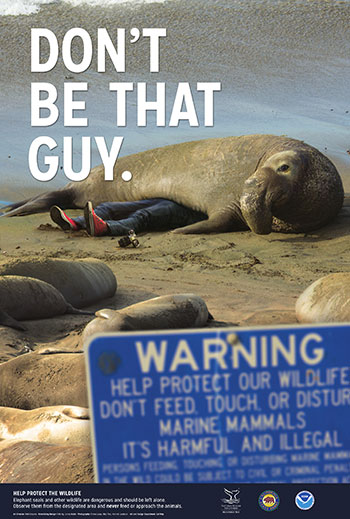
Responsible Recreation in the New Media Age
By Rebecca Wilken
May 2016
That new camera update on your phone may be great for snagging photos at the amazing concert coming up, but camera phones and selfie sticks are raising new concerns for animal welfare worldwide.
It may be tempting to approach that elephant seal pup lounging on the beach to snap a stellar selfie, but get too close and you put the animal -- and yourself -- at risk. And while it may seem perfectly harmless to sidle up to a sea turtle that appears to be "hanging out," the few seconds it takes to snap a photo can have a compounded and lasting impact on the life of a wild animal.
You have the ability to help protect our wildlife. When you visit national marine sanctuaries and other special ocean places, keep your distance and take safe selfies. As a rule of thumb, stay at least 50 yards (150 feet) from seals, sea lions and other marine mammals, and keep at least 100 yards (300 feet) from larger whales. Even if wild animals approach you, be sure to give them plenty of space. A curious seal pup might approach on its own, but the mother is likely to be nearby, and may see your interaction as a threat.
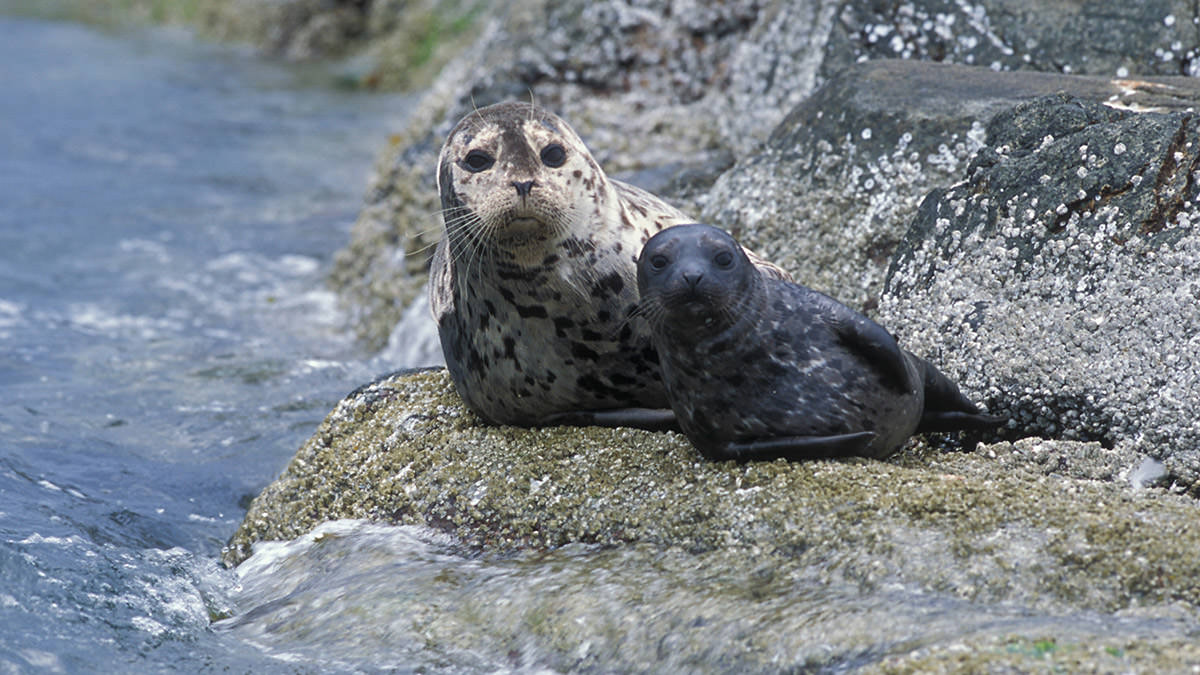
When you get too close to a wild animal, you risk stressing or threatening it, and stressed animals are much more likely to act unpredictably. It's important to consider that approaching a wild animal can be considered harassment as well, which is an illegal activity. Under the Marine Mammal Protection Act of 1972, harrassment is defined as "any act of pursuit, torment, or annoyance" which has the potential to injure or disturb a marine animal. This can be dangerous for the animal, but can be dangerous for you too. A number of injuries to humans have been reported as a result of getting too close to an animal during a quick photo opp.
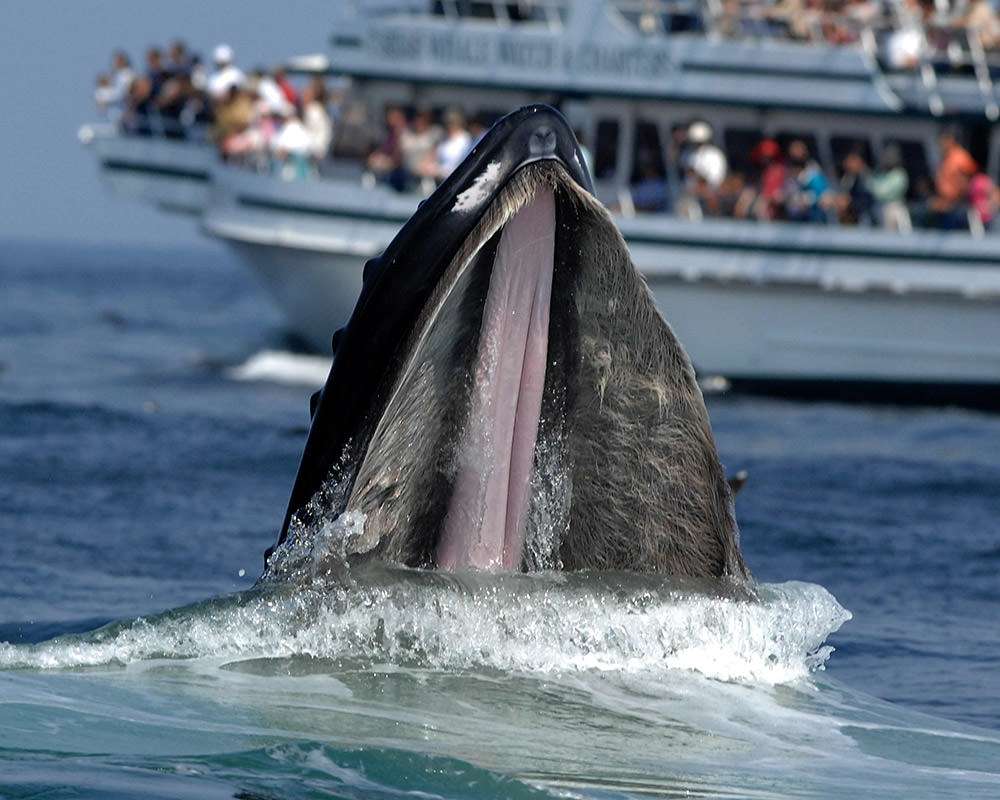
Plus, certain species may be inhibited from carrying out behaviors they need to survive when humans are around. When humans approach beaches where harbor seals are raising their pups, for example, the females will flee to the water, potentially leaving the pups behind -- and if the beach stays busy, they may not return to nurse their pups, putting the pups' lives at risk. Keeping your distance allows animals to go about their natural lives with minimal stress, and will help them stay healthy and function more efficiently in their natural environment. You can help these animals live a safe and healthy life!
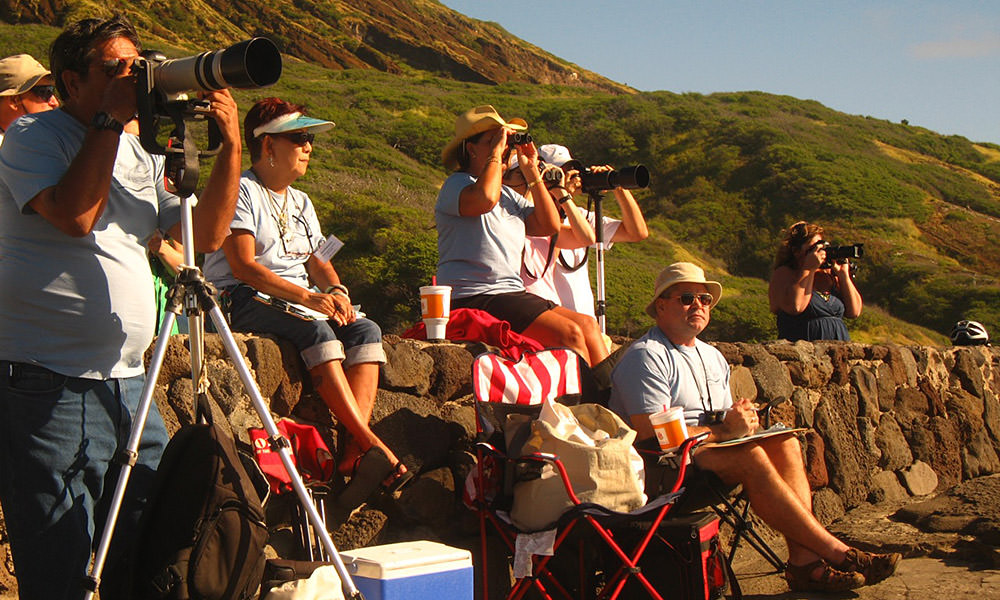
Chances are if you're within selfie stick range or if the animal appears to notice your presence, you're too close for comfort. And though you may miss out on that up-close-and-personal shot, taking a step back can significantly improve the welfare of a wild animal. Giving animals an appropriate, comfortable amount of space is also a way each of us can work to enforce important federal guidelines and regulations about approaching protected species.
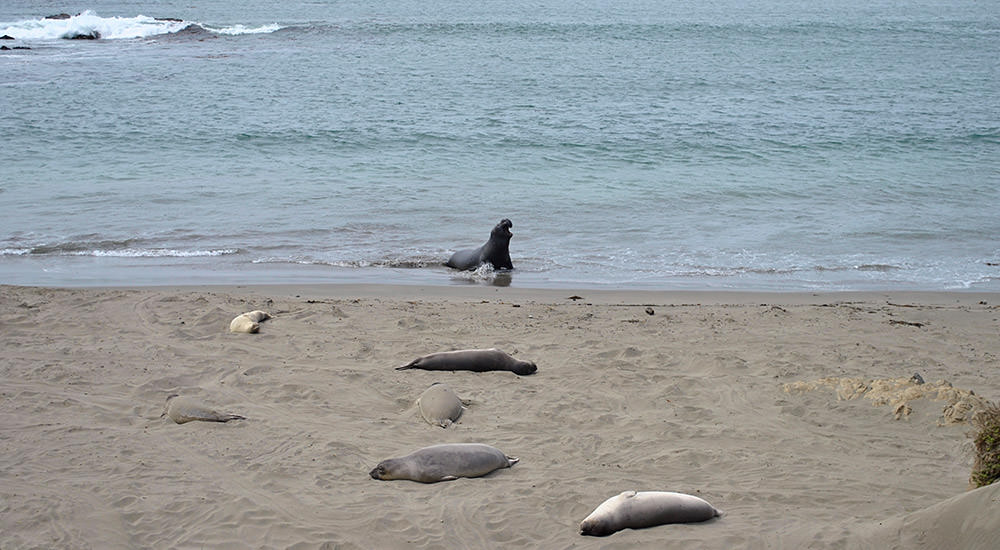
Truly appreciating an animal means striving to protect it, and keeping your distance from an animal help keeps it healthy. Taking a step back also allows you to watch how the animal interacts with its environment.
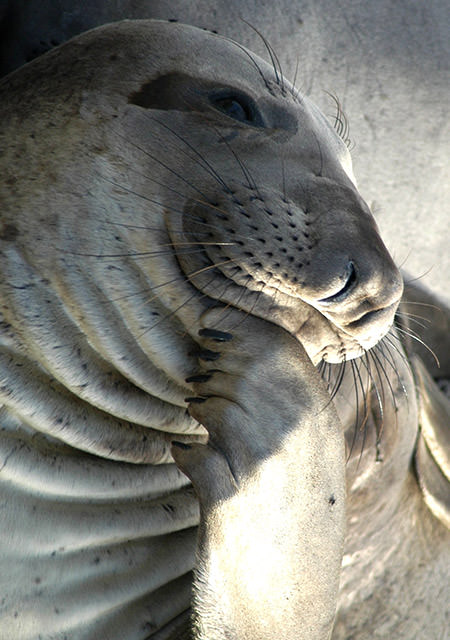
You may even find that the environment you find yourself in is so amazing you forget you even have a phone. So the next time you find yourself in a national marine sanctuary or elsewhere amongst wildlife, see what you can do to promote safe selfies, expand your ecological understanding, and protect our natural world.
Spot someone who isn't taking safe selfies? You can report animal harassment and violations of the Marine Mammal Protection Act to the NOAA Office of Law Enforcement's 24-hour line at 1-800-853-1964.

